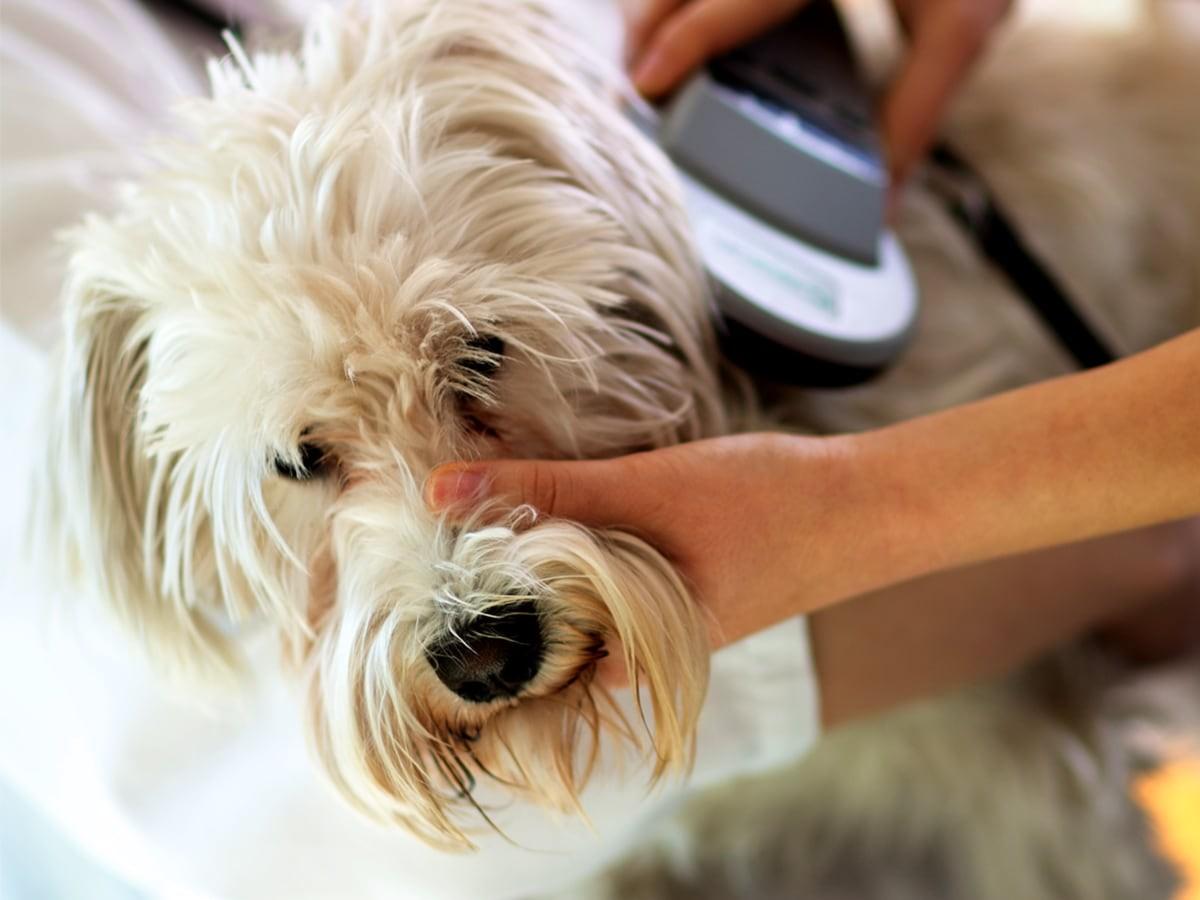In the United States, about 113 smartphones go missing each minute (that's 160,000 a day and about 30 million a year!) And we all know how much we love our phones and losing one is not just a monetary loss but also an emotional one. Now compare that to a dog. The American Humane Association estimates over 10 million dogs and cats are lost or stolen in the U.S. every year. One in three pets will become lost at some point during their life. Our love for our pet ones is unconditional and losing one is going to be nothing but a blood pressure of over 200, hundreds of posters saying ‘missing’ on every corner of the locality and also probably a panic attack. Now technology has evolved and we can track our phones wherever they are on this planet. How great would it be to have something similar for our dogs? Guess what! It is indeed possible. Thanks to advanced technology. As the Moore’s law states – ‘Roughly every two years, the number of transistors on microchips will double.’ Come in Microchips.
What is a Microchip?
A microchip is a RFID (radio-frequency identification) transponder. It carries a unique ID number which is roughly a size of a rice grain. So, when the chip is scanned by a vet or an animal shelter, it transmits an ID number. The good part here is that it doesn’t require any charging, battery, power and doesn’t have any moving parts. The chip is nothing different than a vaccine which can be injected under the loose skin between your dog’s shoulder blades. And you won’t even need some big surgery for it as it can be done very well at your vet’s clinic.
Things to note while chipping your dog
The identification number won’t be of any use unless it is registered under the national pet recovery database
There are other private players also available whose service you can use. They can provide different microchip databases and technology
Make sure you feed in all the relevant information to the dog’s chip including both cell phone and landline numbers of both, yourself and anyone who is responsible for the dog in the family to contact in case of any emergency.
Update your contact information with the registry
Use a collar or a harness additionally which mentions the owner’s information and contact details
What is a Microchip not?
Basic collar or harness – Collars and harnesses can be torn off of broken or even removed in case of stealth. A microchip on the other hand is a permanent ID that your dog gets when it is lost or stolen
GPS tracking device – Not to be confused with a GPS system that is used in mobile phones to track the devices. A microchip is more like a complementary device which can help people nearby to return the dog once found. They cannot guide you to the dog’s location rather guide the people around the dog to you
Complicated and expensive – Thanks to the rapid advancements, technology has become more available at cheaper costs. Microchips are hence not very expensive or complicated to administer for that matter.
Will My Personal Information Be Accessible Through The Dog Microchip?
The answer is No. The microchip cannot compromise your personal information. When the RFID chip is scanned, it will only provide an identification number that correlates to the chip’s manufacturer. That number is then looked up against the registry under which you have registered your dog and yourself as the parent. You will be contacted by that service using the contact information on file. This is why it is essential to make sure your registration information is accurate
Does Microchipping Dogs & Cats Cause Pain?
It is the same as getting blood drawn through an injection from the dog. The needle used during microchipping may cause a small pinch. It is just a temporary feeling and thus no local or general anesthesia would be required.
Side Effects of Microchipping Dogs & Cats?
Microchipping is widely used and is considered very safe for dogs in general irrespective of the breed, age, sex, weight or height. But there can be minor side effects which can be very well managed. These include –
Temporary swelling or inflammation at the injection site – This is nothing different than what happens to us humans
Chip slipping under the skin – This is a rare occurrence and even if it happens it is usually within 1 inch of the initial location
Conclusion
A study found that “Pets with microchips are up to 20 times more likely to be reunited with their owners.” Microchips not only help people find their lost pets, but have also helped shelters return animals to their rightful owners more quickly. So go ahead and chip your dog at the earliest before it gets lost and you’ll be thankful to yourself. Here are some more benefits to microchip your pet
Happy Mood and Health to your Doggo and lots of Love and Licks to you!
